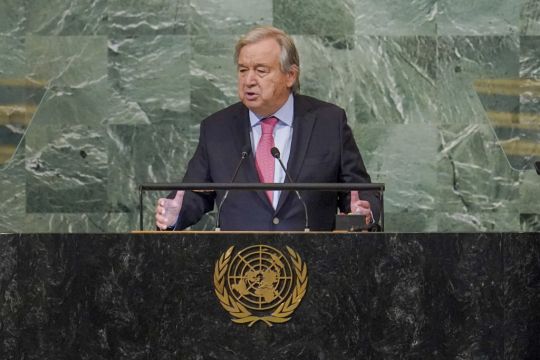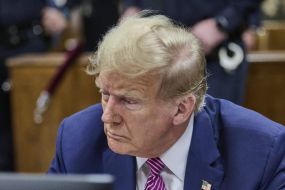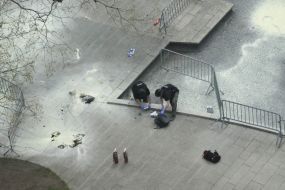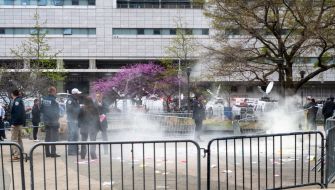The head of the UN has warned world leaders that nations are “gridlocked in colossal global dysfunction” and are not ready or willing to tackle the challenges that threaten the future of humanity — and the planet.
“Our world is in peril — and paralysed,” said United Nations secretary general Antonio Guterres.
Speaking at the opening of the General Assembly’s annual high-level meeting, he emphasised that hope remained, but his remarks reflected a tense and worried world.
He cited the war in Ukraine and multiplying conflicts around the world, the climate emergency, the dire financial situation of developing countries and setbacks in UN goals for 2030 including an end to extreme poverty and quality education for all children.
He also warned of what he called “a forest of red flags” around new technologies despite promising advances to heal diseases and connect people.
Mr Guterres said social media platforms are based on a model “that monetises outrage, anger and negativity”, and artificial intelligence “is compromising the integrity of information systems, the media, and indeed democracy itself”.
The world lacks even the beginning of “a global architecture” to deal with the ripples caused by these new technologies because of “geopolitical tensions”, he added.
His opening remarks came as leaders from around the planet reconvened at UN headquarters in New York after three years of pandemic interruptions, including an entirely virtual meeting in 2020 and a hybrid one last year.
This week, the halls of the UN are filled once more with delegates reflecting the world’s cultures. Many faces were visible, though all delegates are required to wear masks except when speaking to ward off coronavirus.
Mr Guterres started on a note of hope, showing a video of the first UN-chartered ship carrying grain from Ukraine — part of the deal between Ukraine and Russia that the United Nations and Turkey helped broker — to the Horn of Africa, where millions of people are on the edge of famine.
He stressed that co-operation and dialogue are the only path forward, and warned that “no power or group alone can call the shots”.
“Let’s work as one, as a coalition of the world, as united nations,” he urged leaders gathered in the General Assembly hall.
"Lofty ideals must be made real in people’s lives.
So let’s develop common solutions to common problems - grounded in goodwill, trust & the rights shared by every human being."
-- @antonioguterres to world leaders at #UNGA. pic.twitter.com/EOLBaPdnvd— United Nations (@UN) September 20, 2022
Advertisement
Geopolitical divisions are undermining the work of the UN Security Council, international law, people’s trust in democratic institutions and most forms of international co-operation, Mr Guterres said.
“The divergence between developed and developing countries, between North and South, between the privileged and the rest, is becoming more dangerous by the day,” the secretary-general said.
“It is at the root of the geopolitical tensions and lack of trust that poison every area of global co-operation, from vaccines to sanctions to trade.”
Nearly 150 heads of state and government are on the latest speakers’ list, a high number reflecting that the UN remains the only place not just to deliver their views but to meet privately to discuss the challenges on the global agenda.
The 77th General Assembly meeting of world leaders convenes under the shadow of Europe’s first major war since the Second World War. The conflict between Russia and Ukraine has unleashed a global food crisis and opened fissures among major powers in a way not seen since the Cold War.
At the top of the agenda for many is Russia’s invasion of Ukraine, which not only threatens the sovereignty of its smaller neighbour but has raised fears of a nuclear catastrophe at Europe’s largest nuclear plant in the country’s Russia-occupied south east.
The loss of important grain and fertiliser exports from Ukraine and Russia has triggered a food crisis, especially in developing countries, and inflation and a rising cost of living in many others.
Over objections from Russia and a few allies, the assembly voted last Friday to allow Ukrainian President Volodymyr Zelensky to pre-record his speech because of reasons beyond his control — the “ongoing foreign invasion” and military hostilities that require him to carry out his “national defence and security duties”.







